Raycus High Quality 20w/30w/50W/100w Portable Mini Split Fiber /3w/5w/uv /CO2 Galvanometer/Laser Marking Machine Used for Metal
A fiber laser marking machine is a high-performance laser engraving and marking system that utilizes a fiber laser source to produce precise, durable markings on a wide variety of materials. These machines are known for their efficiency, speed, and ability to create high-quality, long-lasting marks with minimal maintenance. Fiber lasers are particularly effective on metals, such as stainless steel, aluminum, brass, and titanium, but they can also mark some plastics, ceramics, and composites, making them versatile for various applications.
The technology behind fiber laser marking machines involves a fiber-optic laser source, which generates light that is highly focused and directed onto the material’s surface. The high energy density of the fiber laser allows it to engrave, etch, or mark materials without the need for physical contact, minimizing wear and tear on both the machine and the material. These systems offer precise control over the marking depth, contrast, and appearance, allowing for intricate designs, logos, serial numbers, QR codes, and more.
Due to their high efficiency and low operational costs, fiber laser marking machines are widely used in industries such as automotive, aerospace, electronics, medical devices, jewelry, and packaging. Their ability to produce high-quality marks that are resistant to wear and environmental factors, like heat and corrosion, makes them ideal for parts and products that require long-term traceability, brand identification, or regulatory compliance.
Description
Raycus High Quality 20w/30w/50W/100w Fiber /3w/5w/uv /CO2 Galvanometer/Laser Marking Machine Used for Metal Portable Mini
Product Description
A fiber laser marking machine is a high-performance laser engraving and marking system that utilizes a fiber laser source to produce precise, durable markings on a wide variety of materials. These machines are known for their efficiency, speed, and ability to create high-quality, long-lasting marks with minimal maintenance. Fiber lasers are particularly effective on metals, such as stainless steel, aluminum, brass, and titanium, but they can also mark some plastics, ceramics, and composites, making them versatile for various applications.
The technology behind fiber laser marking machines involves a fiber-optic laser source, which generates light that is highly focused and directed onto the material’s surface. The high energy density of the fiber laser allows it to engrave, etch, or mark materials without the need for physical contact, minimizing wear and tear on both the machine and the material. These systems offer precise control over the marking depth, contrast, and appearance, allowing for intricate designs, logos, serial numbers, QR codes, and more.
Due to their high efficiency and low operational costs, fiber laser marking machines are widely used in industries such as automotive, aerospace, electronics, medical devices, jewelry, and packaging. Their ability to produce high-quality marks that are resistant to wear and environmental factors, like heat and corrosion, makes them ideal for parts and products that require long-term traceability, brand identification, or regulatory compliance.



|
Output power
|
20W 30W 50W
|
||
|
Wavelength
|
1064nm
|
||
|
Guide laser
|
Red light/655nm wavelength/output1.0mw
|
||
|
Marking range
|
150mm*150mm
|
||
|
Optional marking range
|
70mm*70mm/150mm*150mm/170mm*170mm/200mm*200mm/300mm*300mm
|
||
|
Marking model
|
XYZ axis dynamic focusing
|
||
|
Min line width
|
0.03mm
|
||
|
Marking speed
|
≤10000mm/s
|
||
|
Operate system
|
WIN10 64 BITS
|
||
|
Support font
|
True type,AUTOCAD,Others
|
||
|
1D barcode
|
CODE39/CODE128/TIF/CODABAR/EAN/UPC
|
||
|
2D barcode
|
QR/PDF417/DATA Matrix(ECC220)
|
||
|
Support format
|
PLT/DXF/DWG/SVG/STL/BMP/JPG/PNG/TIF
|
||
|
Working environment
|
Temperature:10℃-35℃ Humidity 5%/75%
|
||
|
Power consumption
|
Single phase 110v/220v optional/50-60HZ
|
||
|
Cooling way
|
Air cooling
|
||
|
Control connector
|
USB-2.0
|
||









Applications:
-
Electronics:
- Marking on circuit boards, chips, connectors, and electronic components.
- High precision required for identifying components without damaging sensitive parts.
-
Automotive:
- Marking parts like engine components, chassis, and sensors.
- Used for serial numbers, barcodes, and QR codes to aid in traceability.
-
Medical Devices:
- Marking on surgical instruments, implants, and medical packaging.
- Ensures compliance with industry standards for traceability and sterilization.
-
Aerospace:
- Engraving on parts such as turbine blades, control panels, and other critical components.
- Ensures durability and precise identification of high-value parts.
-
Jewelry:
- Engraving on rings, watches, necklaces, and other precious items.
- Provides intricate designs and detailed logos or serial numbers.
-
Packaging and Food Industry:
- Marking on packaging materials, labels, and bottles.
- Used for expiration dates, batch numbers, and production codes.
-
Tooling and Metalworking:
- Marking on tools, molds, dies, and metal parts.
- Laser marking helps to ensure traceability and brand identity.
-
Plastic and Consumer Goods:
- Marking on plastic products such as household goods, toys, and cosmetic packaging.
- Works well on plastics that might be difficult to mark with other methods.
Products:
- Handheld Laser Marking Machines: For portable applications, easy to move around and operate.
- Desktop Laser Marking Machines: Compact machines suitable for small parts and high-precision applications.
- CO2 Laser Marking Machines: Used primarily for non-metal materials, including plastics, glass, and wood.
- Fiber Laser Marking Machines: Excellent for marking on metals and high-density materials.
- UV Laser Marking Machines: Used for delicate materials that are heat-sensitive, such as medical devices and plastics.
Laser marking provides a highly durable, high-quality finish and can be used on a variety of materials to meet the needs of different industries.
Fiber laser marking machines are highly versatile and can mark a wide range of materials with precision and durability. These machines are particularly well-suited for marking metals such as stainless steel, aluminum, brass, copper, and titanium, making them a popular choice in industries like automotive, aerospace, electronics, and tool manufacturing. Fiber lasers can also be used on various non-metal materials, including plastics, ceramics, and some composites, though they are most commonly associated with metals due to their high power density and efficiency.
In the automotive industry, fiber laser marking is used for marking parts such as engine components, chassis, and sensors with serial numbers or QR codes for traceability. In aerospace, it is utilized for engraving identification numbers and logos on critical parts, ensuring durability and resistance to harsh environments. Electronics and telecommunications industries also rely on fiber lasers for precise marking of components like circuit boards, connectors, and semiconductors, where high accuracy is crucial.
The medical industry uses fiber laser marking for marking surgical instruments, implants, and medical devices. The precision of the laser ensures the markings do not interfere with the functionality or sterilization processes. In tool manufacturing, fiber lasers are used to mark tools and molds with logos, part numbers, and other identifying information. Additionally, the jewelry industry uses fiber lasers to engrave intricate designs and brand logos on precious metals, allowing for fine detail and consistent results.
Fiber lasers are also employed in consumer goods for marking packaging, toys, and cosmetics, as well as in packaging for printing barcodes, dates, and other essential information. This wide range of applications across diverse industries demonstrates the flexibility and precision of fiber laser marking machines.



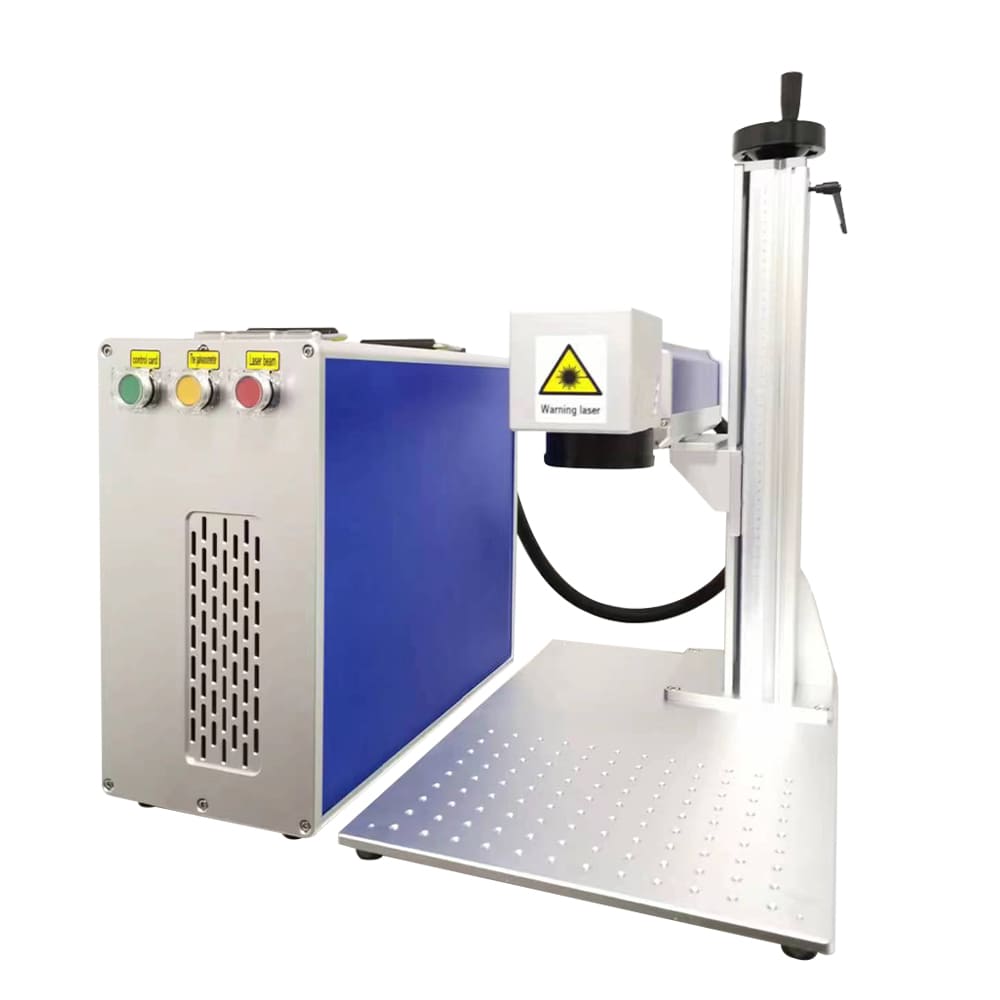
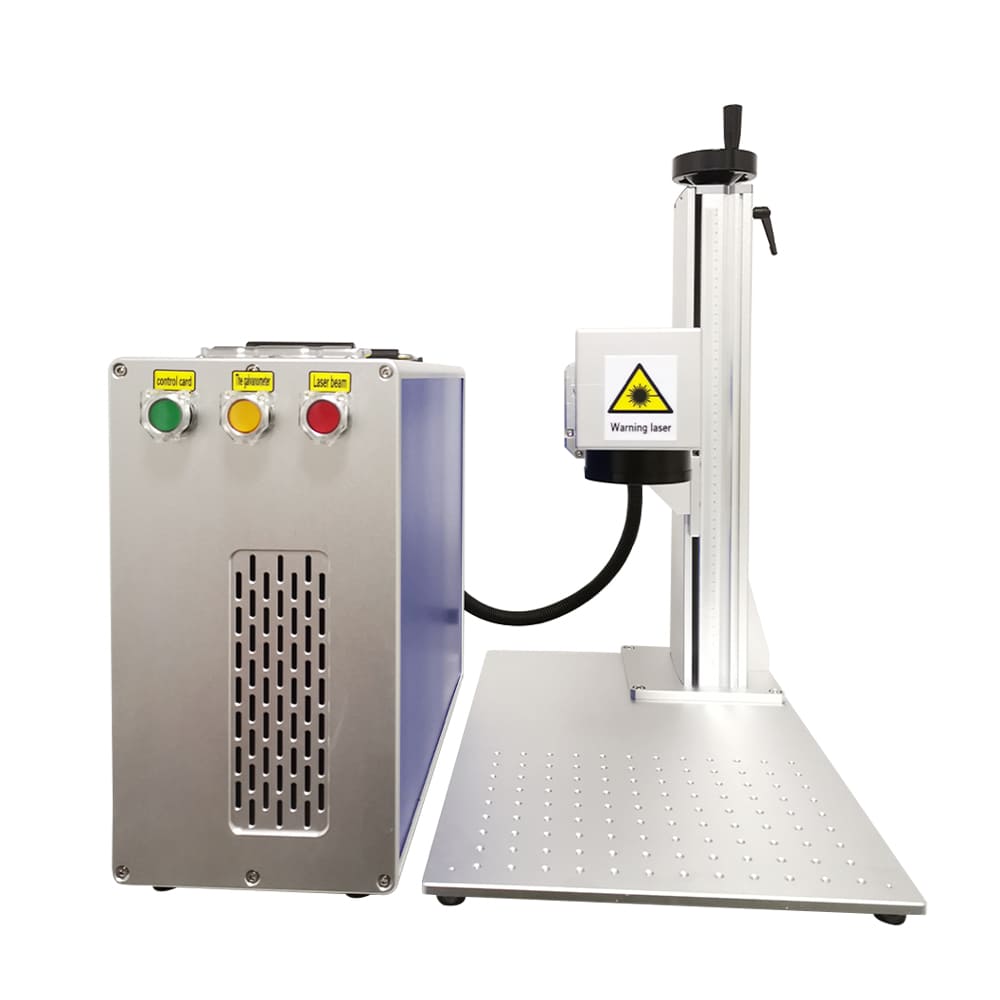
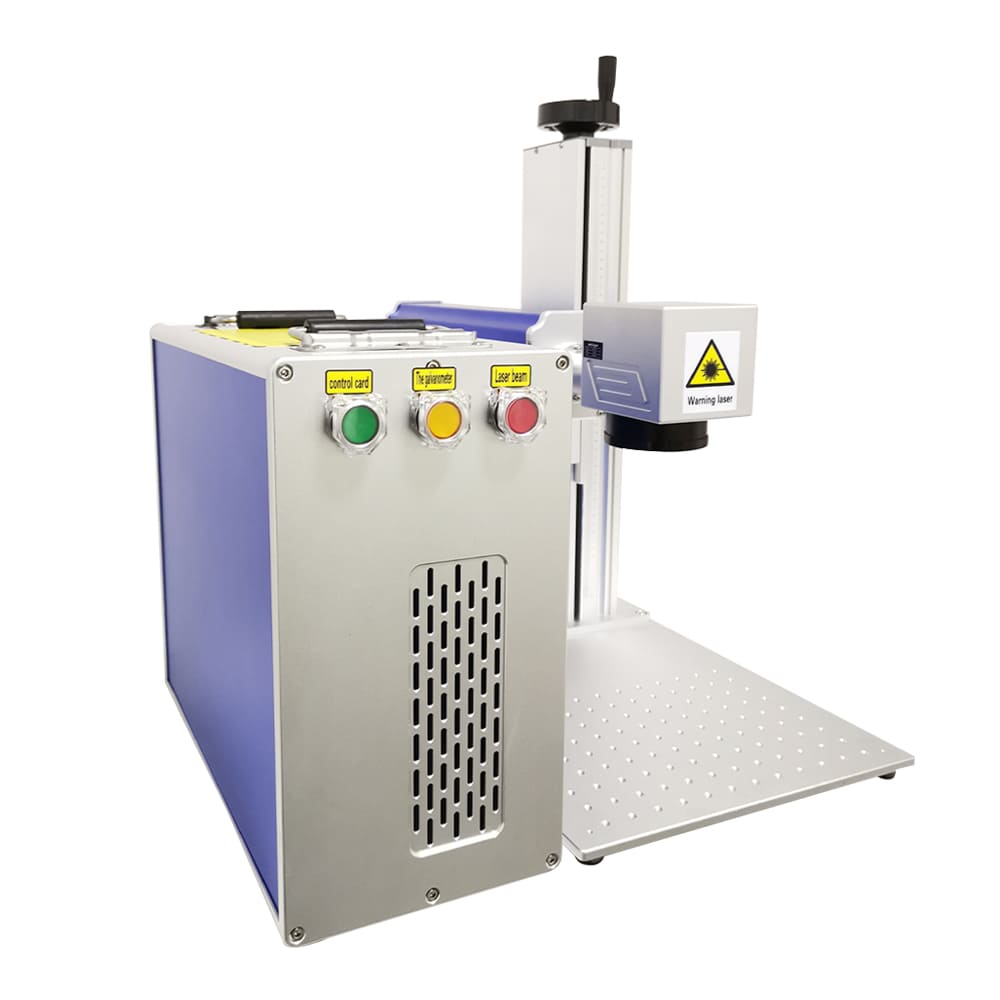
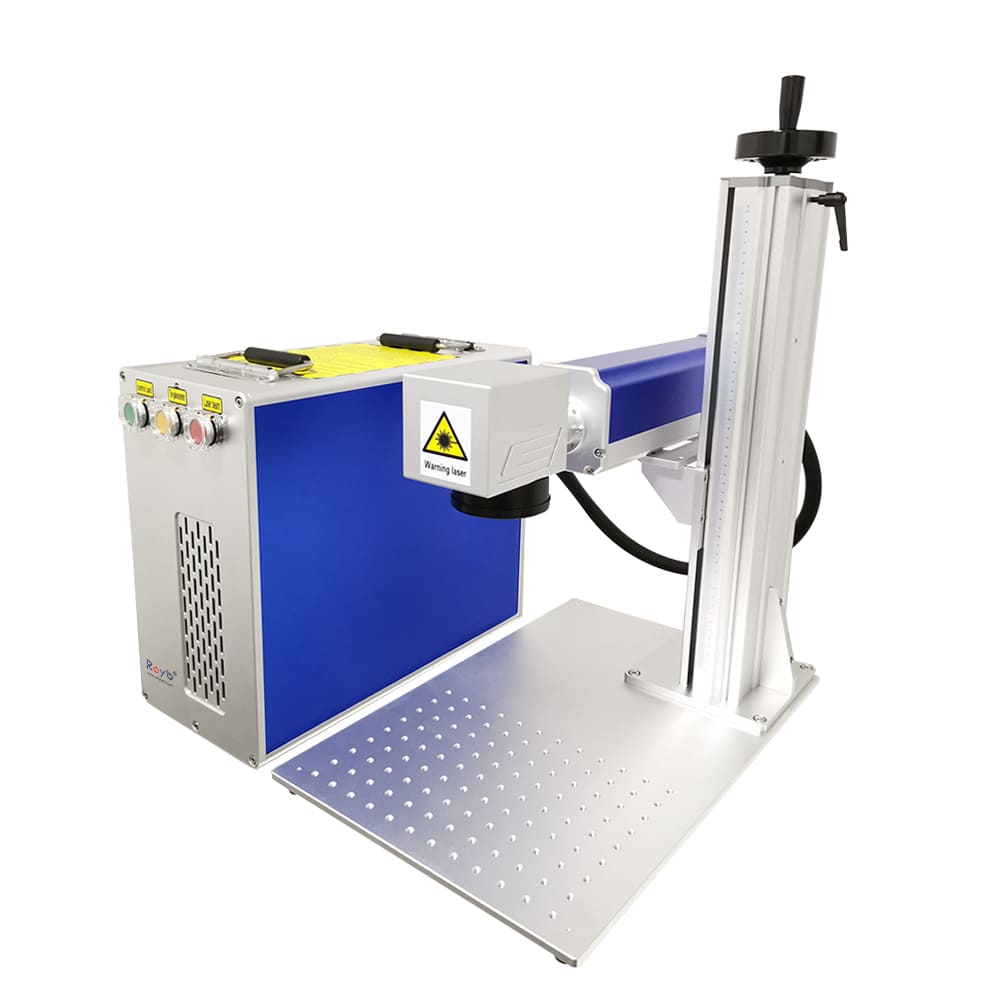
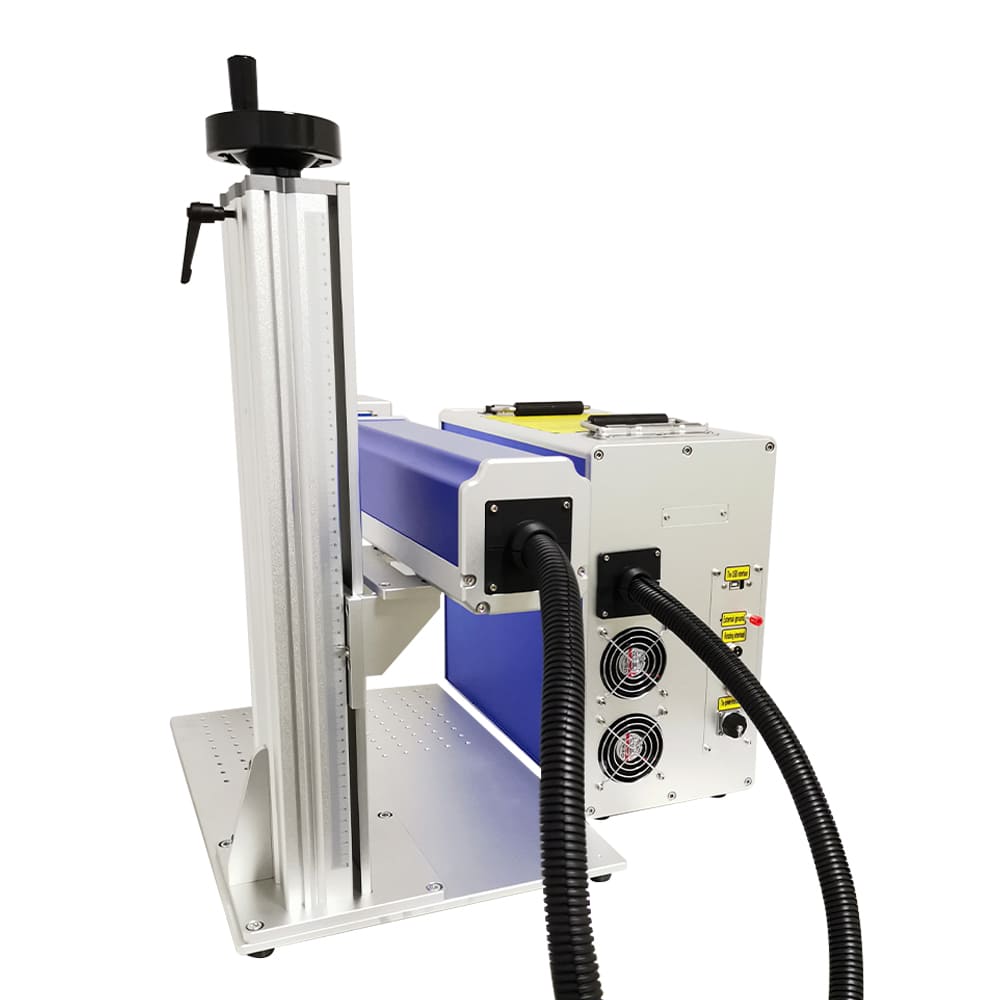
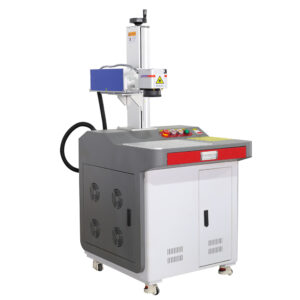
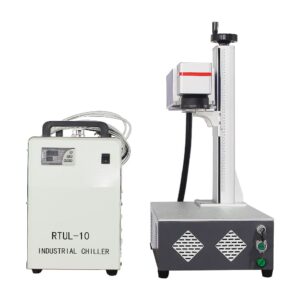
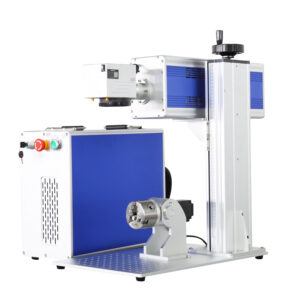
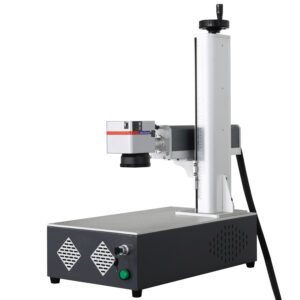
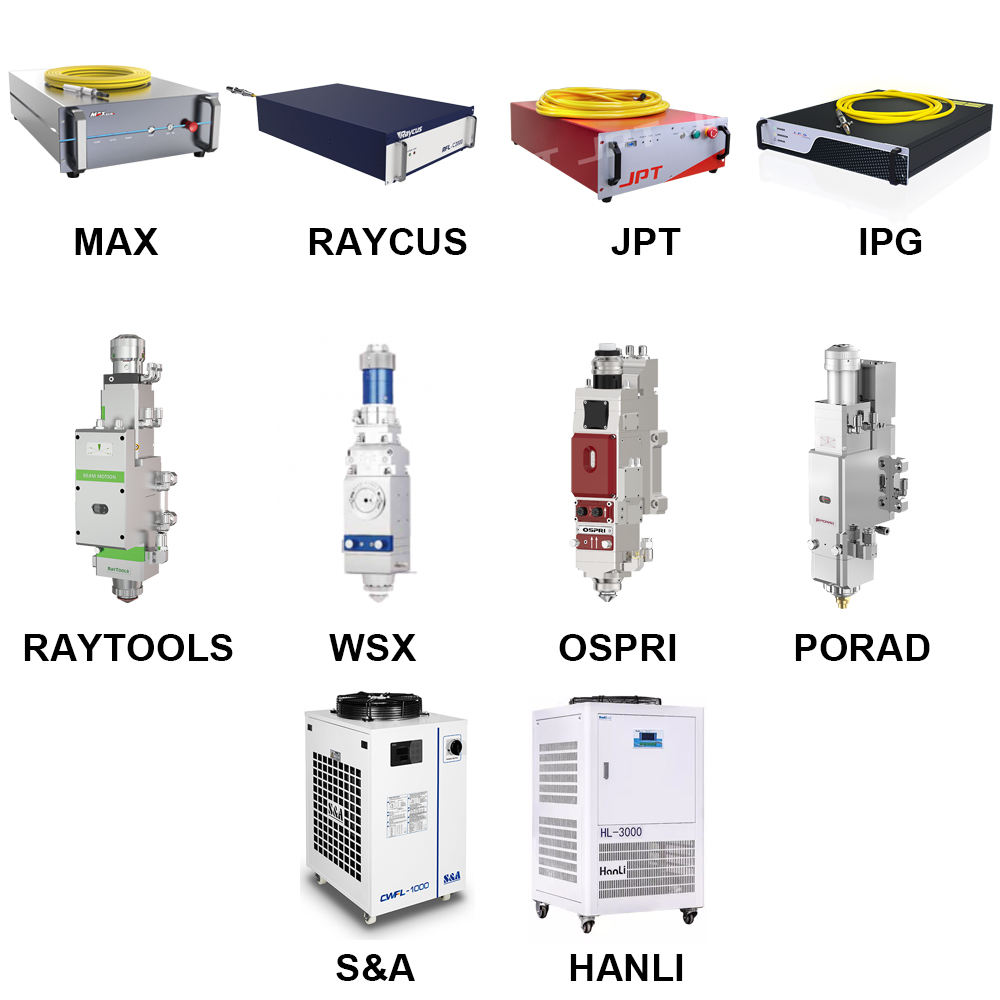
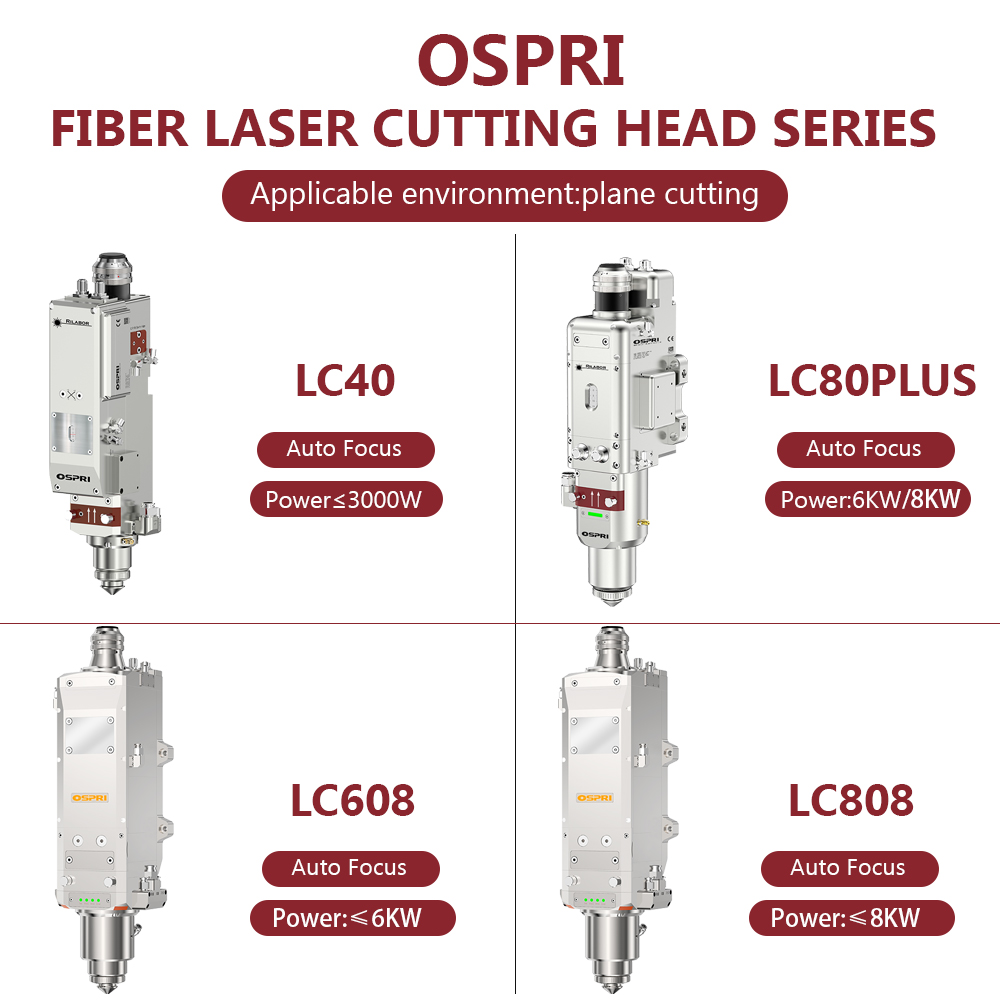
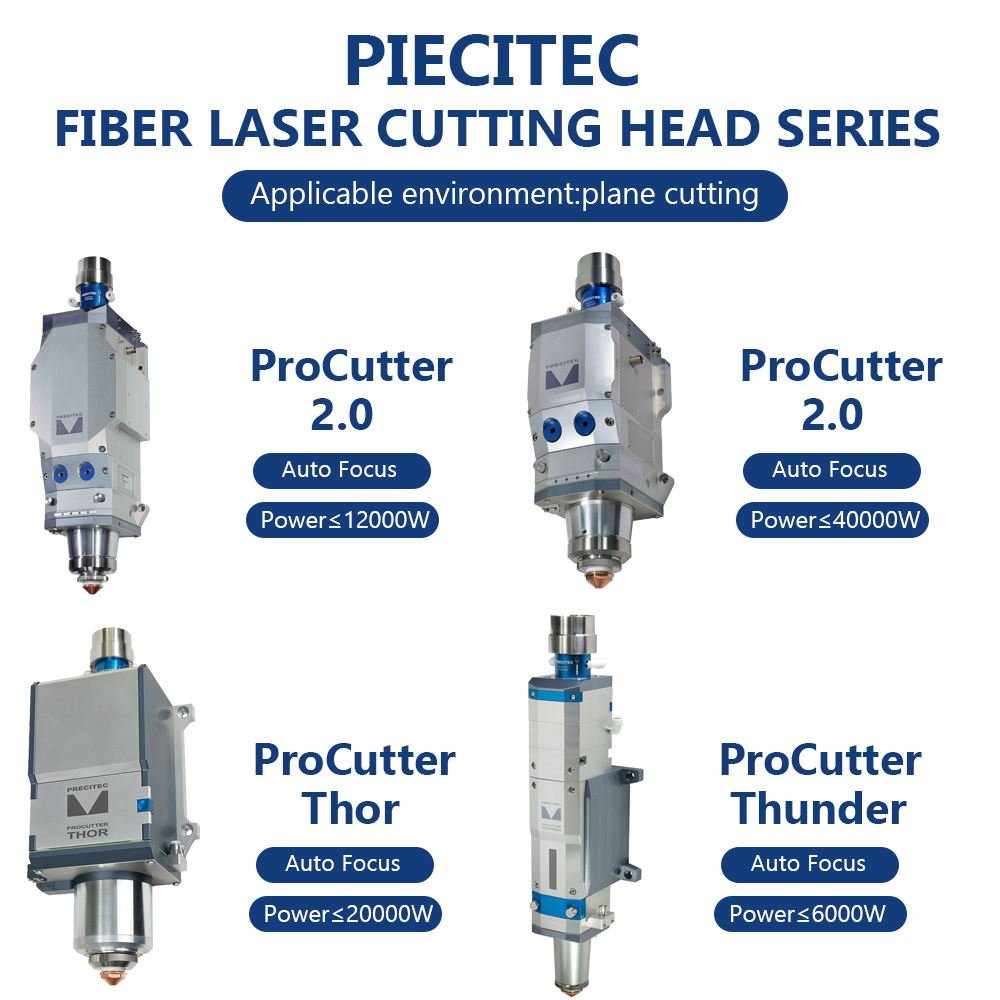
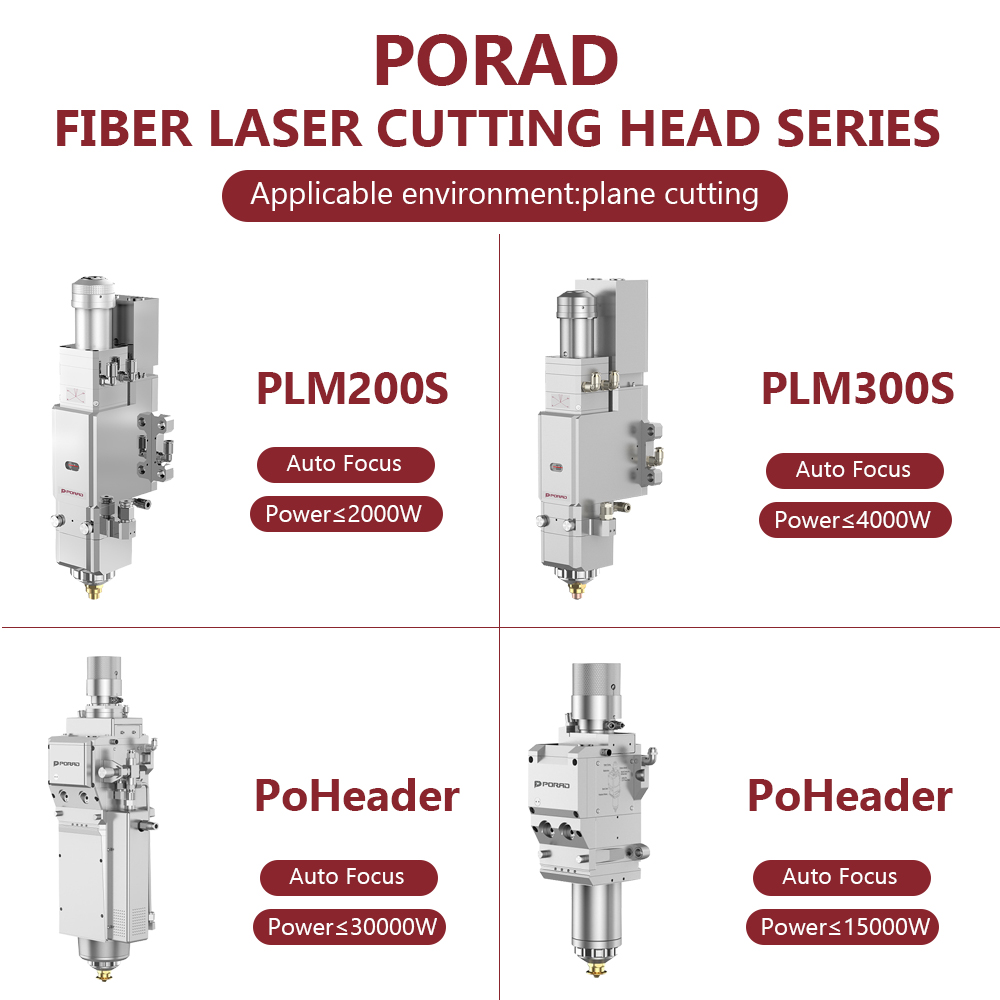
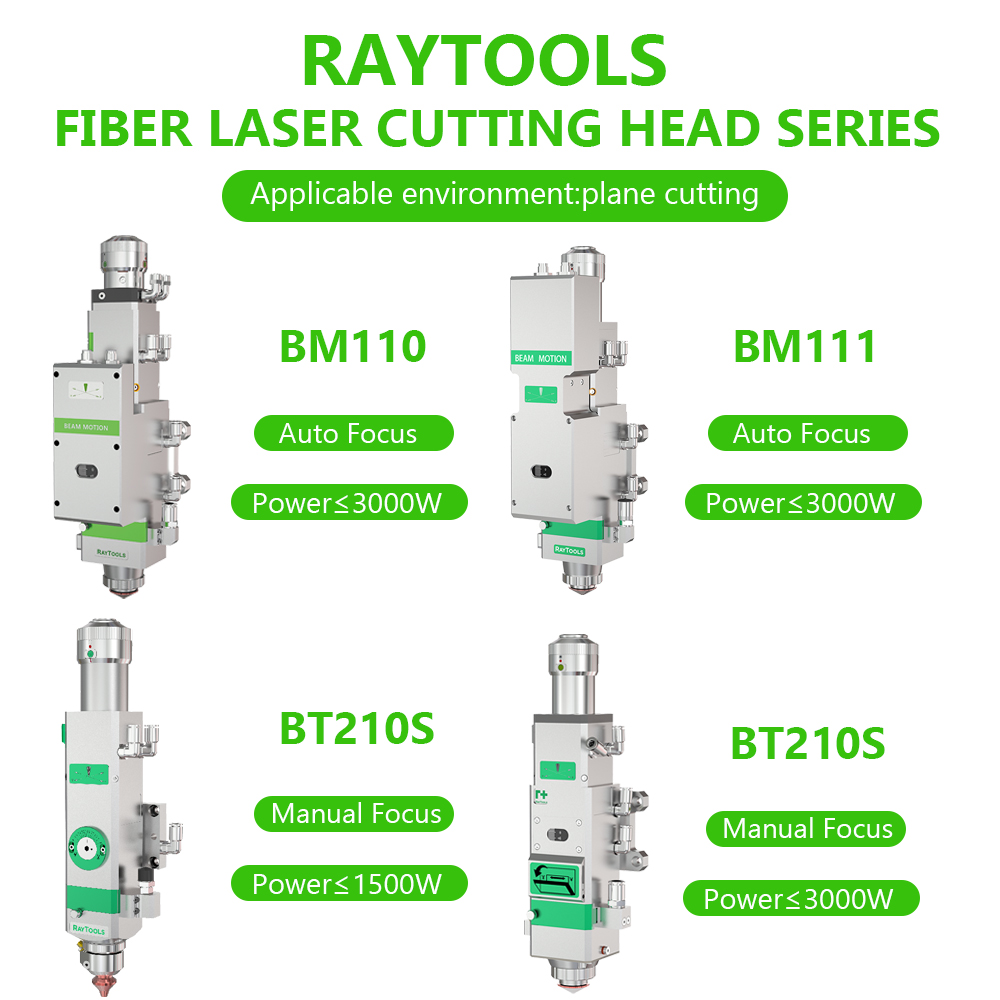
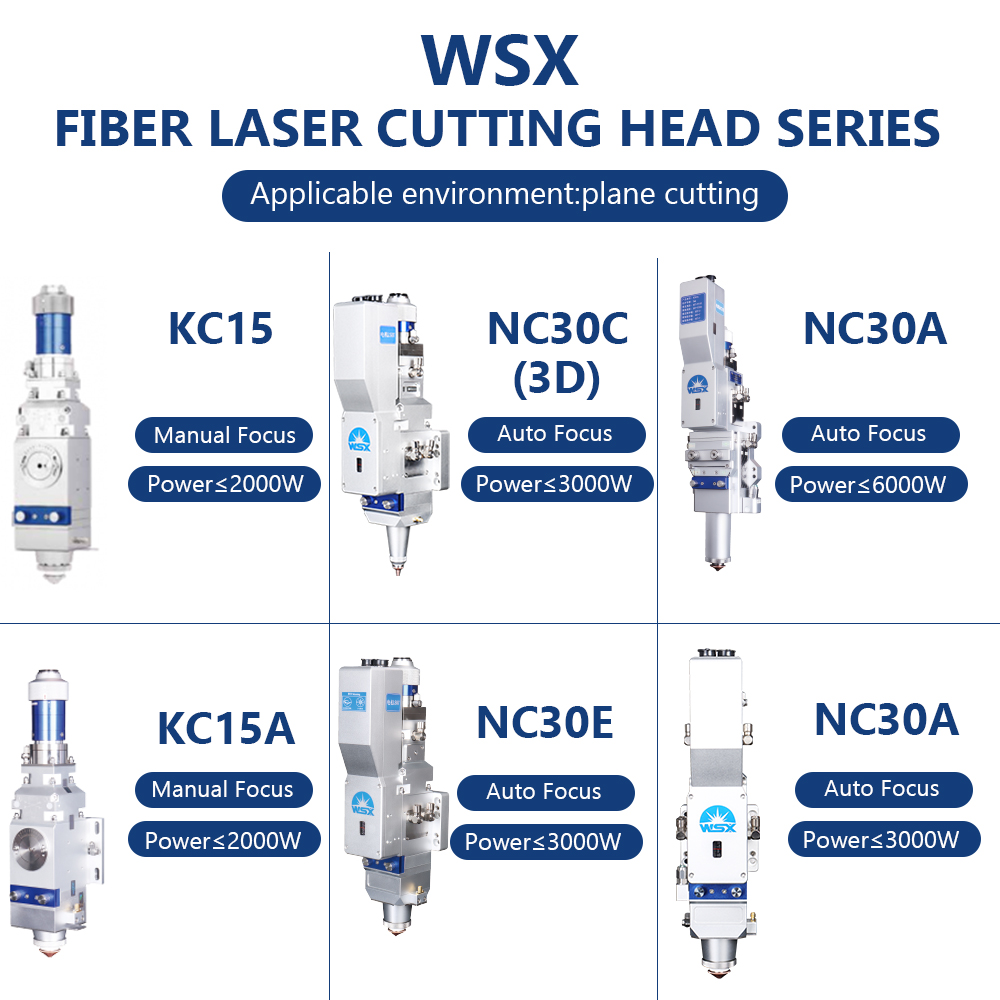

Reviews
There are no reviews yet.